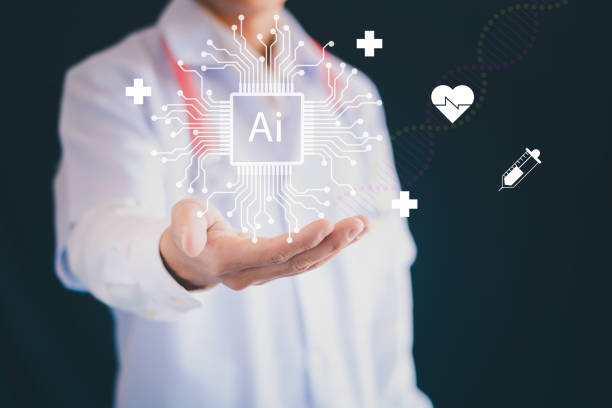Precision medicine, a paradigm shift in healthcare, aims to tailor medical treatments to individual patients based on their unique genetic makeup, lifestyle, and environment. At the heart of this revolution lies artificial intelligence (AI), a powerful tool poised to transform how we diagnose, treat, and prevent diseases.(Beth, 2024)
Unveiling the Power of AI
AI algorithms excel at analyzing vast amounts of complex data, a critical capability in precision medicine. By sifting through mountains of genomic information, medical images, electronic health records, and lifestyle data, AI can identify intricate patterns and insights that may elude human perception. This ability to discern subtle variations in individual patient profiles enables a more personalized approach to healthcare.
Revolutionizing Diagnosis and Treatment
● Early Disease Detection: AI-powered algorithms can analyze medical images, such as X-rays and MRIs, with unprecedented accuracy, enabling early detection of diseases like cancer and cardiovascular conditions. This early diagnosis can significantly improve treatment outcomes and increase the chances of successful recovery.
● Predicting Disease Risk: By analyzing genetic data, lifestyle factors, and environmental exposures, AI can predict an individual’s risk of developing certain diseases. This proactive approach allows healthcare providers to implement preventive measures and personalized interventions, potentially averting the onset of serious illnesses.
● Optimizing Treatment Plans: AI can analyze a patient’s unique characteristics, including genetic makeup, medical history, and response to previous treatments, to identify the most effective treatment options.(Johnson, 2021) This personalized approach can lead to better treatment outcomes, reduced side effects, and improved patient quality of life.
● Drug Discovery and Development: AI is accelerating the process of drug discovery and development by analyzing vast datasets to identify potential drug targets, predict drug efficacy, and minimize the risk of adverse reactions. This can lead to the development of more effective and safer medications.
The Future of Precision Medicine with AI
As AI continues to evolve, its impact on precision medicine will only deepen. We can anticipate the emergence of AI-powered virtual health assistants that provide personalized health advice, wearable devices that continuously monitor health data and provide real-time insights, and even AI-driven robotic systems that assist in complex surgical procedures.
Challenges and Considerations
While the potential of AI in precision medicine is immense, it is crucial to address the challenges and ethical considerations that accompany this transformative technology. Ensuring data privacy and security, mitigating bias in AI algorithms, and fostering transparency and trust between patients and healthcare providers are paramount.
Conclusion
AI is poised to revolutionize precision medicine, ushering in an era of personalized healthcare that is more effective, efficient, and patient-centric. By harnessing the power of AI responsibly, we can unlock the full potential of precision medicine and improve the health and well-being of individuals worldwide.
● Kircher M, et al. (2014). A general framework for estimating the relative pathogenicity of human genetic variants. Nature Genetics, 46(3), 310–315. https://doi.org/10.1038/ng.2892
● https://go.yu.edu/blog/ai-data-analytics#
● https://www.cancer.gov/research/infrastructure/artificial-intelligence
● Johnson KB, Wei WQ, Weeraratne D, Frisse ME, Misulis K, Rhee K, Zhao J, Snowdon JL. Precision Medicine, AI, and the Future of Personalized Health Care. Clin Transl Sci. 2021 Jan;14(1):86-93. doi: 10.1111/cts.12884. Epub 2020 Oct 12. PMID: 32961010; PMCID: PMC7877825.





